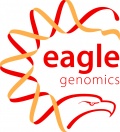| Please visit our ***NEW*** OBF/BOSC website: https://www.open-bio.org/ |
-
BOSC 2012
The 13th Annual Bioinformatics Open Source Conference (BOSC 2012) will take place July 13-14, 2012, in Long Beach, CA, right before ISMB 2012.
The deadline for submitting abstracts has passed, but there will be openings for last-minute lightning talks and last-minute posters at the conference.
Contents
Important Dates
- April 13, 2012: Deadline for submitting abstracts for talks
- June 1, 2012: Last day for early registration discount (registration is through ISMB, but you don't have to register for ISMB itself in order to register for BOSC)
- June 4, 2012: Deadline for authors to submit updated abstracts, and for submission of poster abstracts if you want them to be included in the BOSC program. (There will also be room at BOSC for last-minute posters.)
- July 11-12, 2012: Codefest 2012 (Loyola Marymount University, Los Angeles, California)
- July 13-14, 2012: BOSC 2012 (Long Beach, California)
- July 15-17, 2012: ISMB 2012 (Long Beach, California)
- July 19-20, 2012: EU-codefest 2012 (Lodi, Italy)
Overview
The Bioinformatics Open Source Conference (BOSC) is a satellite of ISMB. It is sponsored by the Open Bioinformatics Foundation (O|B|F), a non-profit group dedicated to promoting the practice and philosophy of Open Source software development within the biological research community.
Open Source software has flourished in the bioinformatics community for well over a decade. When the first BOSC (Bioinformatics Open Source Conference) was held in 2000, there were already a number of popular open source bioinformatics packages, and the number and range of these projects has increased dramatically since then. Many open source bioinformatics packages are widely used by the research community across a wide variety of applications. Open source bioinformatics software has facilitated rapid innovation, dissemination, and wide adoption of new computational methods, reusable software components, and standards.
BOSC brings together bioinformatics open source developers from all over the world so they can forge connections each other (both within and across projects), increase the visibility of their work, and collaborate to build shared resources. Participants can work together to create use cases, prototype working code, or run hands-on tutorials in new software packages and emerging technologies. For those who are bioinformatics software users rather than developers, BOSC introduces or updates them on a wide array of projects that they might find useful.
Please spread the word about BOSC to interested developers; all are welcome. On Twitter, we recommend the hash tag #bosc2012.
Sponsors
We thank Eagle Genomics, Ltd. and an anonymous donor for sponsoring three Student Travel Awards at BOSC 2012.
Sessions
- Cloud and Parallel Computing -- This session will cover cloud-based approaches to improving software and data accessibility. The emergence of cloud computing has made highly scalable cluster computing available to computational biologists. Services such as Amazon's Elastic Compute Cloud combined with publicly available datasets promise to lower the overhead to participate in large scale data analyses. Talks will focus on how the community can build up resources, datasets, and workflows for making the best use of cloud infrastructure. We will also include talks on data-parallel approaches to analyzing massive data sets, such as those resulting from next-generation sequencing and mass spec proteomics, and reports on the parallelization of bioinformatics algorithms in general.
- Genome-scale Data Management -- This session will focus on processes and technologies that support the creating, managing and reporting of genomic data. This session is appropriate for discussion of systems that involve components such as (but not limited to) Ensembl and GMOD/Chado data stores, Taverna and Galaxy analysis workflows, and BioMart and InterMine warehouses.
- Linked Data and Translational Knowledge Discovery -- Linked Data is an emerging set of conventions on using basic Semantic Web standards (HTTP URIs and RDF in particular) to expose, share, and connect data, information, and knowledge online. This session will explore the application of Linked Data and other knowledge-discovery techniques and paradigms to help advance our understanding of human health and disease.
- Software Interoperability (joint session with BSI-SIG, the Software Interoperability SIG) -- Open Source approaches to integrating the latest bioinformatics tools. Examples of interoperability environments include Galaxy, Cytoscape, caBIG, and myGrid.
- Bioinformatics Open Source Project Updates -- This session will feature short talks from ongoing projects describing their recent progress. Abstracts will be solicited from open source projects affiliated with the O|B|F (see http://www.open-bio.org/wiki/Projects), including the Bio* projects, DAS, BioMOBY, EMBOSS, and GMOD, but any other open-source project will be equally eligible to submit presentations for this session.
- Panel: Bioinformatics Paper Reviews: Open Standards and Standards of Openness -- This panel will cover two interrelated types of openness in bioinformatics paper reviews:
- Shared standards/criteria that all reviewers could use when judging bioinformatics papers.
- The requirement that authors make their software/methods/data available so that reviewers can replicate and evaluate the work described in the paper.
Submitting Abstracts
The deadline for abstract submissions was Friday, April 13, 2012. There will be openings for last-minute lightning talks and last-minute posters at the conference.
Abstracts must be one page in length and submitted as a PDF (preferred) or Microsoft Word file only. Please observe the following formatting guidelines:
- Use 1 inch (2.5 cm) margins on the top, sides, and bottom of the page.
- Include the following pieces of information in order from the top of the page:
- Title
- Authors, with the presenting author's name underlined.
- Author affiliations, including the e-mail address of the presenting author.
- URL for the overall project web site
- URL for accessing the code
- The particular Open Source License being used
- The abstracts will be printed "as is" in the program booklet; please help your all-volunteer Organizing Committee by following the formatting guidelines above.
Accepted talks will be 5-20 minutes. You will be notified of the length of your talk upon abstract acceptance.
Open Source License Requirement
The Open Bioinformatics Foundation, which sponsors BOSC, is dedicated to promoting the practice and philosophy of Open Source Software Development within the biological research community. For this reason, if a submitted talk proposal concerns a specific software system for use by the research community, then that software must be licensed with a recognized Open Source License, and be available for download, including source code, by a tar/zip file accessed through ftp/http or through a widely used version control system like cvs/subversion/git/bazaar/Mercurial.
See the following websites for further information:
Posters at BOSC
BOSC includes poster sessions. All accepted speakers will also have the opportunity to present posters. In addition, abstracts for which there is not enough time to allocate a talk may be selected for poster presentation. Finally, there will be a few spots reserved for last-minute posters.
Your poster should not exceed these dimensions: 46 inches wide by 45 inches high.
Student Travel Awards
Thanks to generous sponsorship from Eagle Genomics and an anonymous donor, we are pleased to announce the competition for three Student Travel Awards for BOSC 2012. Each winner will get free admission to BOSC (a $190-290 value).
Keynote Speakers
Jonathan Eisen
Dr. Eisen is a professor of evolutionary biology at U. C. Davis, and also has an adjunct position at the Department of Energy Joint Genome Institute in Walnut Creek, CA. His research focuses on the origin of novelty (how new processes and functions originate). Dr. Eisen is heavily involved in the Open Access publishing movement and is Academic Editor in Chief of PLoS Biology. In 2011, he was awarded the 2012 Benjamin Franklin Award for Open Access in the Life Sciences.
His talk is entitled "Science Wants to Be Open - If Only We Could Get Out of Its Way":
Scientific research and education is inherently an open activity. Yet the culture of scientific practice has inserted barriers in the way of this openness in every conceivable area from peer review, to publishing, to sharing resources, to education. I will argue that most or even all of these barriers are unnecessary and should be eliminated for scientific progress to be most efficient.
Organizing Committee
Chair
- Nomi L. Harris (Lawrence Berkeley National Laboratory)
Members
- Jan Aerts (Katholieke Universiteit Leuven)
- Brad Chapman (Biopython developer; Harvard School of Public Health)
- Peter Cock (Biopython developer; James Hutton Institute, formerly Scottish Crop Research Institute)
- Christopher Fields (National Center for Supercomputing Applications)
- Erwin Frise (Lawrence Berkeley National Laboratory)
- Peter Rice (European Bioinformatics Institute)
Ex Officio (Members of the O|B|F Board)
Open Source License Requirement for Talks at BOSC
The Open Bioinformatics Foundation, which sponsors BOSC, is dedicated to promoting the practice and philosophy of Open Source Software Development within the biological research community. For this reason, if a submitted talk proposal concerns a specific software system for use by the research community, then that software must be licensed with a recognized Open Source License, and be available (including source code) for download as a tar/zip file accessed through ftp/http or through a widely used version control system like cvs/subversion/git/bazaar/Mercurial.
More information on Open Source:
Previous BOSCs
- The first BOSC was held in 2000.
- BOSC 2011 took place in Vienna in July 2011.
- Information about the first 12 conferences
Contact Us
- If you'd like to join the mailing list for BOSC-related announcements, including the call for abstracts and deadline reminders, please subscribe to the Bosc-announce list. This list has low traffic, and your address will be kept private.
- If you have questions about the conference, please contact the organizers at bosc@open-bio.org.

